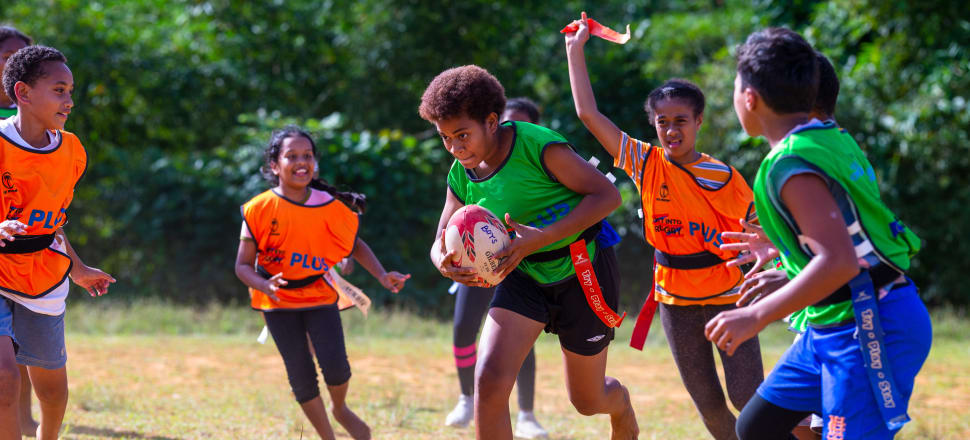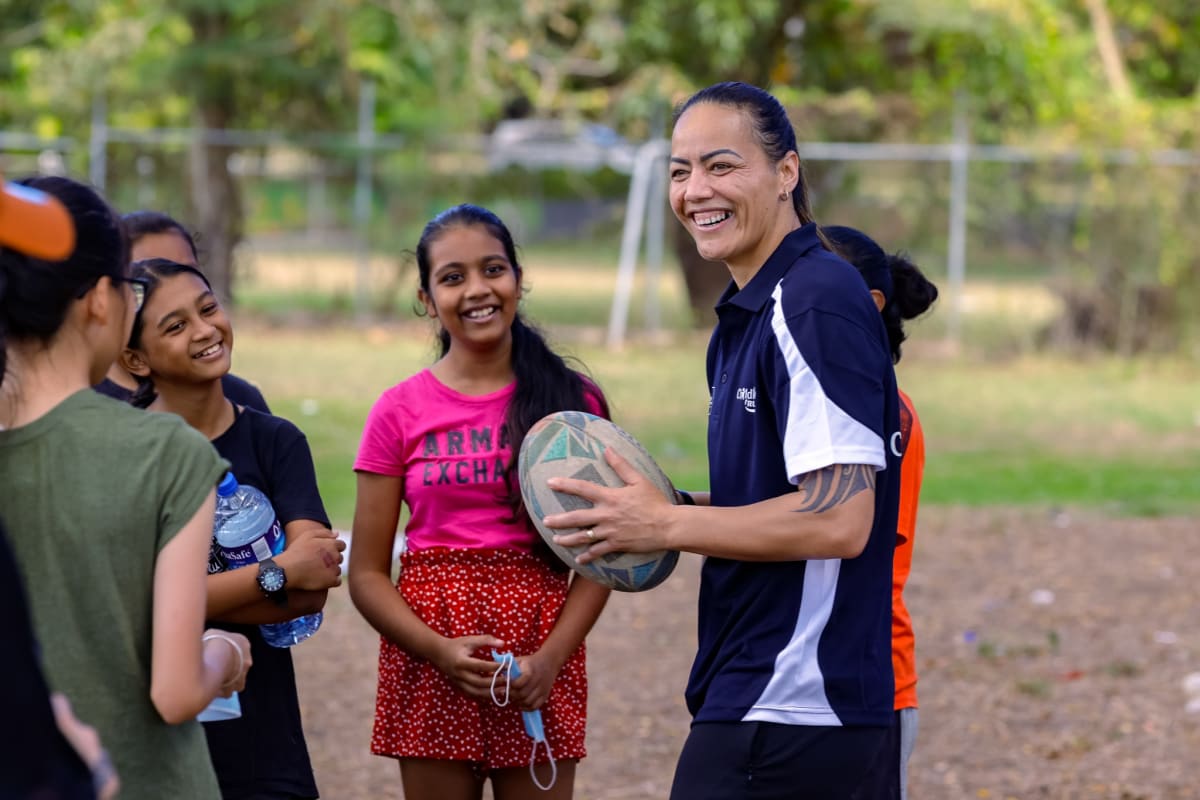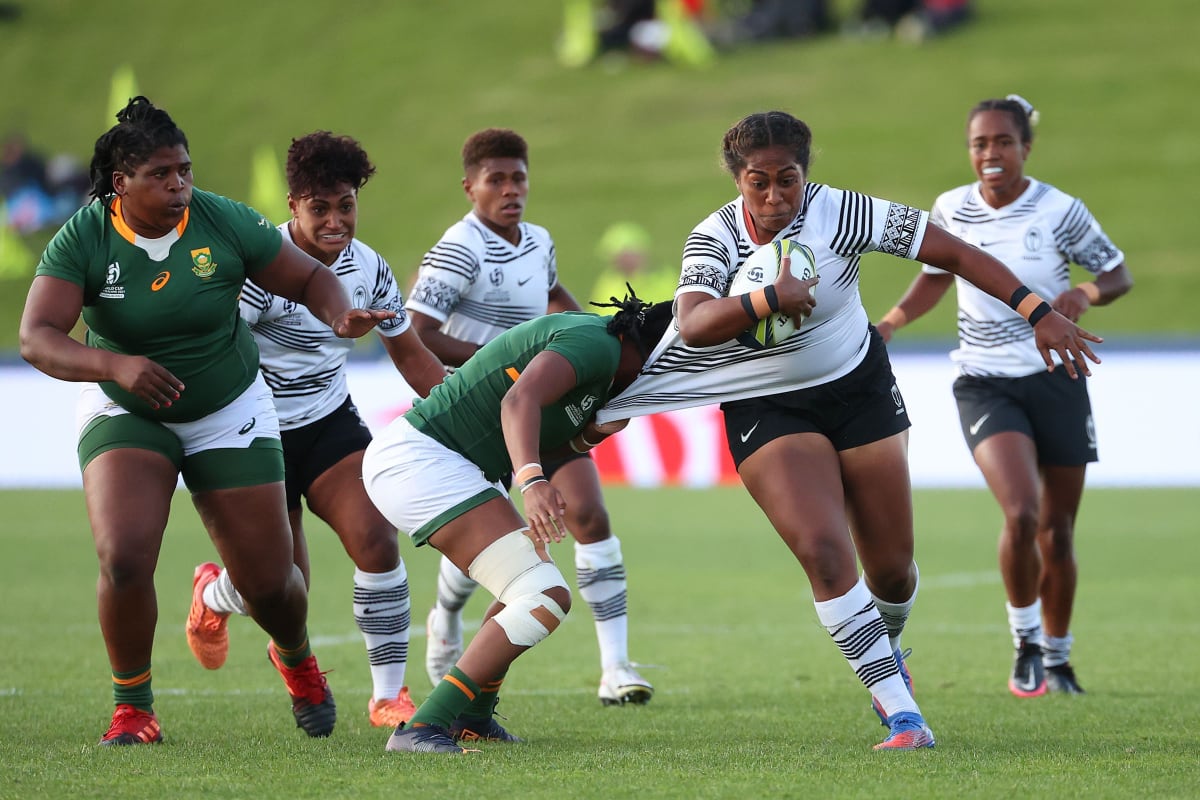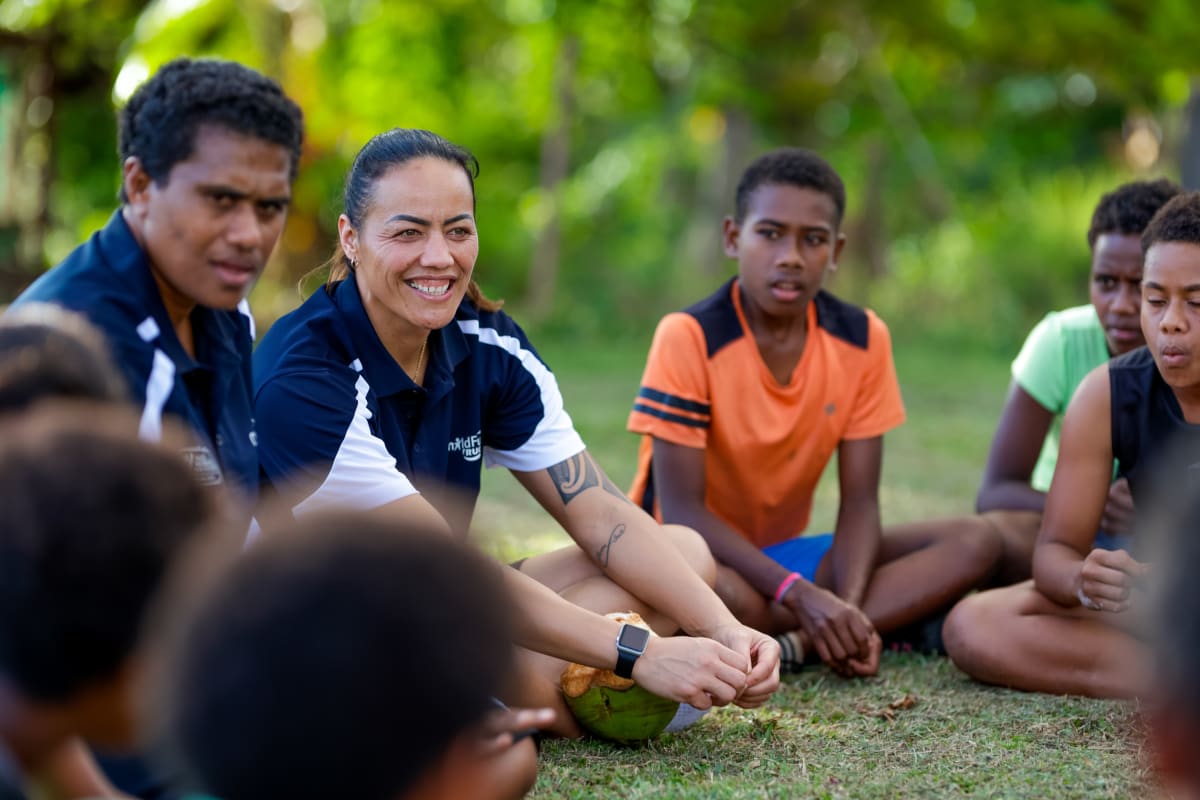
As girls across NZ are captured by the Rugby World Cup, and Black Ferns role models, girls in vulnerable communities throughout the Pacific are being given the chance to pick up an oval ball for the first time, Merryn Anderson writes.
As former Black Fern Honey Hireme-Smiler watched the Fijiana women make their stunning debut at the Rugby World Cup in Aotearoa, she knew from first-hand experience the difference it would make to a generation of young Fijian girls.
Hireme-Smiler had been in Fiji as an ambassador for ChildFund Rugby, the principal charity of the Rugby World Cup 2021, which she says was "a real eye-opener". The impetus behind the charity is giving children - especially girls - in vulnerable communities around the world the chance to pick up a rugby ball for the first time.
The Fijiana women’s team lost to England and France in pool play, but caused one of the upsets of the tournament, beating South Africa, 21-17. Their courageous journey getting to the World Cup was well-documented - the team went a decade without playing a game, and in some cases it was seen as a sport not to be encouraged for women.
“It was a prime example when those Fijiana women ran out there, there were all those young Fijian girls who are sitting at home thinking ‘Great, that’s what I want to do, that’s where I want to be’,” says Hireme-Smiler, who's represented New Zealand in rugby union, league and sevens and is a valued commentator and presenter. “It was super amazing to see that come to fruition.
“I think about what sport’s given me in my life, and it’s taught me so many different things around making responsible decisions. It's such a great catalyst for inspiring positive social change."
And New Zealand rugby fans have had the opportunity to make a difference to children in the Pacific, too, when buying tickets to the World Cup matches.

ChildFund Rugby operates in 10 countries across Asia, Africa and the Pacific and teaches children life skills through the medium of rugby.
“We are privileged in New Zealand - and the Rugby World Cup is a great example - if you’re a young girl in New Zealand, you have access to a lot of sports, and are very supported in doing so,” ChildFund CEO Mark Collins says.
“In most of the places in the world where we work and have these programmes, girls wouldn’t get the opportunity to learn these skills and play sports.
“It’s teaching them things like resilience, standing up for themselves, being responsible, goal setting, managing emotions.”
Hireme-Smiler travelled to Fiji earlier this year for ChildFund Rugby’s Get Into Rugby Plus programme, specifically designed for the Pacific region.
“It looks at their life skills and using rugby, or integrated rugby, to build their confidence and resilience,” she explains.
“They look at how they can transfer those skills within that sport to life skills as well and ultimately helping them to achieve some of their personal goals - even things like managing emotions and developing positive relationships.”
ChildFund Rugby began in Laos in 2013, and over half of their participants are girls.
“It was amazing bringing those communities and those young girls together to form those bonds. That’s what sport offers, those positive relationships,” Hireme-Smiler explains.
“Just seeing the girls there and the enjoyment they get, that real sense of joy from throwing a ball around and being able to play, and just that camaraderie they develop within them.”

ChildFund Rugby isn’t necessarily designed to create future rugby stars, but to give children tools to tackle what life throws at them off-field.
“Not only is sport good for you physically but it’s good for you mentally and socially,” Collins says. “One of my favourite lines is ‘sport creates good humans’. You learn all sorts of things as a sportsperson. You learn goal setting, managing emotions, responsible decision making, team work, leadership.
“All of these things can be brought out through what looks like just playing sport.”
Through ChildFund’s partnership with the 2019 Rugby World Cup, £2m (NZ$1m) was raised for their programmes in Asia. And with the option to donate when purchasing tickets to this year’s event, Collins is optimistic this tournament will make a change.
“It’s going to enhance the programmes, it means we can have more people in them, and it also means we can continue the programmes,” Collins says.
“We do have to fundraise for these programmes, and the partnership with World Rugby gives us not only a fundraising angle but raising the awareness of how important this is going forward, which gives us even more opportunities for supportive donors to help us out.”

Over 30,000 fans attended the opening day at Eden Park, with 66,000 fans total attending pool matches across Auckland and Whangārei.
“It’s incredible actually, it’s wonderful to watch and particularly exciting to see the crowds turning out,” Collins says.
“Women’s sport is really important, and with the support of the Rugby World Cup with ChildFund, we really get to help women who wouldn’t normally get that opportunity and that’s really inspiring.
“We just love this opportunity to really raise the profile of women’s sport around the world.”
*The Rugby World Cup 2021 semifinals take place on Saturday at Eden Park, with Canada taking on England at 4.30pm, and the Black Ferns facing France at 7.30pm.
*You can learn more about and support ChildFund Rugby here.







